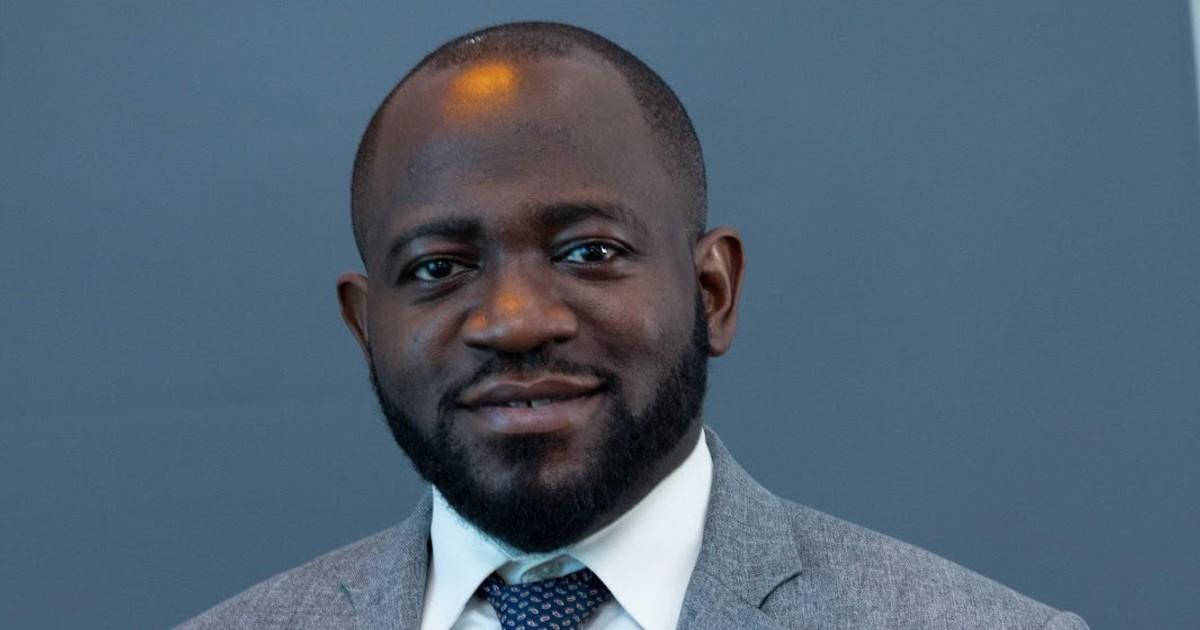M
ayowa Adeosun is reshaping Africa’s real‑estate landscape by launching Assetrix, a proptech platform that blends blockchain with fintech principles to make property markets transparent, accountable and accessible.
From a young age, Adeosun observed construction crews on an Essex site. While others admired the finished building, he focused on the unseen foundations that truly give a structure its stability. “A building rises from invisible layers, not grand visions,” he said. Those lessons became the bedrock of Assetrix, a Nigerian startup founded this year to reimagine real‑estate investment through verifiable systems, regulatory compliance and milestone‑driven fund management.
Before Assetrix, Adeosun honed his expertise in African fintech with Sycamore, an investment and savings platform he co‑founded. There he learned that distrust in financial services stems from opaque systems, not cultural skepticism. “People don’t distrust money because they’re wary; they distrust it because they can’t see what happens to it,” he explained. The same lack of visibility plagues real‑estate projects, especially for diaspora investors who cannot track construction progress.
Applying fintech concepts—transaction visibility, milestone verification and transparent accountability—Adeosun tackled real‑estate opacity. Nigeria’s market suffers a 70 % project stalling rate, a symptom of systemic misalignment rather than cultural failure. “Fraud is a symptom, not the disease,” he said. Developers collect deposits without obligation to prove progress, investors have no recourse, banks impose prohibitive rates, and no neutral third party enforces accountability.
Assetrix counters this by releasing funds only when developers meet verified construction milestones. This creates a trust infrastructure beneath the visible market, reducing stalled projects and boosting investor confidence.
The platform democratizes investment with a $500 minimum, a bold move that requires careful expectation management. “Real‑estate returns take years and delays happen even on well‑managed projects,” Adeosun admits. To mitigate risk, Assetrix began with 170 founding members who understood the experimental nature of the model. By delivering reliable early returns, the company balances rapid scaling with credibility, ensuring that new investors see tangible results before the platform expands.
Adeosun views Assetrix as a catalyst for economic transformation. Nigeria receives roughly $20 billion in diaspora remittances annually, most of which fuels consumption. If real‑estate operations become transparent and trustworthy, these funds could shift toward productive investment. “Capital flows where it’s trusted,” he says. “If we prove real‑estate can be transparent and accessible, the same logic applies to agriculture, manufacturing and infrastructure.” The implications extend across Africa, where billions in remittances could be redirected to entrepreneurship and infrastructure growth.
For a diaspora investor, Assetrix offers a clear picture: a nurse in Houston logs in during lunch, owns fractional stakes in three Lagos properties—a short‑let in Lekki yielding $200 monthly, a commercial space in Victoria Island returning $450, and a residential development in Ikoyi appreciating 15 % that year. She tracks construction progress, sells tokens on the secondary market within 48 hours, and uses the returns to fund her nephew’s university education.
Tokenised property ownership remains a legal grey area in many African jurisdictions. Adeosun stresses that robust legal frameworks protecting fractional investors are essential; without them, institutional investors stay wary and diaspora funds continue to flow into consumption rather than investment.
Assetrix’s true success metric is repeat investment behaviour. “Anyone can complete one transaction. The question is whether, after the first project delivers returns, investors reinvest or bring others on board,” he asks. Repeat engagement validates both the platform’s infrastructure and its psychological credibility, signalling readiness for national and continental expansion.
Blockchain is a key verification tool, but Adeosun cautions that it does not automatically dismantle entrenched power dynamics. “It redistributes information, not power,” he explains. Traditionally, developers controlled all project data, leaving investors to rely on the developers’ word. With blockchain, every stakeholder—from a Lagos developer to a Houston investor—sees the same verified progress in real time, and funds are released only when milestones are met.
However, code can’t judge construction quality or justify delays. That’s why Assetrix pairs blockchain with SEC‑licensed oversight from Sycamore. “Code handles transparency; professionals handle judgment,” he says. This blend of immutable transparency and expert oversight distinguishes Assetrix in Africa’s emerging proptech ecosystem.
Regulatory compliance is not an afterthought; it’s built into the foundation. “We’re handling people’s life savings, not testing a social media feature,” Adeosun asserts. Credibility can’t be retrofitted; it must be embedded from the start. This regulatory discipline creates a long‑term competitive moat, as later‑comers who scale first and navigate compliance later will face barriers that Assetrix has already cleared.
Looking ahead, Assetrix plans to offer cross‑border African property portfolios on a single platform. A Kenyan investor could own assets in Lagos, Accra, Johannesburg and Kigali through a unified interface, managing them like a stock portfolio. Legal differences, currencies and trust frameworks would no longer be obstacles.
In the end, the invisible work—building solid foundations, verifying progress, enforcing compliance—provides the confidence that every investor, whether in Houston or Lagos, can see their investment standing on a rock‑solid base. That invisible work, according to Adeosun, fuels the continent’s next generation of wealth creation.













